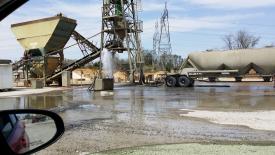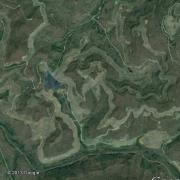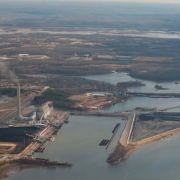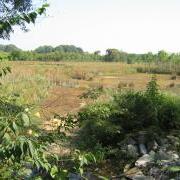
Our litigation program supports TCWN’s mission by enabling us to secure stronger permits and better enforcement of existing permits. Through TCWN’s attorney and partner organizations, TCWN takes legal action to ensure compliance with state and federal clean water laws in four areas: coal mining, toxic industrial discharges/coal-fired power plants, sewage treatment plants, and wetlands protection.
One good thing that can come out of litigation is a supplemental environmental project. These are monies a defendant pays to a local organization to help communities harmed by illegal pollution, and often involve land conservation. Through its litigation program, TCWN continues to support the good work of the environmental community while cleaning up pollution at the same time.
Lawsuits are expensive and we need help with expert fees and legal costs. Please support our litigation program by going here.
RECENT EVENTS
Final Cookeville Consent Decree Signed by Davidson County Chancellor
The citizens of Cookeville and Putnam County will have cleaner water now that Chancellor Ellen Hobbs Lyle has signed the final consent decree that will help to resolved the issues related to water pollution in the Pigeon Roost Creek and the Falling Water River. Judge Lyle entered the consent decree on April 18, 2106. A copy of the signed, final consent decree can be found here.
On November 5, 2015, the Tennessee Department of Environment and Conservation issued a public notice starting a 30-day public comment period for a proposed consent decree that would resolve issues related to nutrient pollution in Pigeon Roost Creek and the Falling Water River. Cookeville has agreed to optimize its treatment plant to reduce nutrient discharges immediately and to pay $80,000 for the state to prepare a total maximum daily load document for nutrients. Cookeville has also agreed to complete corrective action plans in several pump station service areas to reduce sanitary sewer overflows. This consent decree was lodged after several years of litigation and negotiation amount the Tennessee Clean Water Network, the City of Cookeville, and the Tennessee Department of Environment and Conservation.
EPA Issues Final Rule for Discharges from Coal-Fired Power Plants
On September 30, 2015, EPA issued a final rule that for the first time would set limits on the amount of toxic pollutants that can be discharged from coal-fired power plants. The rule will prohibit the discharge of any pollutants associated with ash transport, including fly ash and bottom ash and will limit the concentration of mercury, selenium, arsenic, and nitrates/nitrites in discharges from certain types of air emission control devices. This rule is a significant step forward in regulating the country’s number one source of toxic discharges to our waters, and will affect the discharge permits for TVA’s non-retiring coal-fired power plants in Tennessee. TCWN is currently pursuing permit appeals related to this issue at the Bull Run and Gallatin Fossil Plants.
U.S. Army and BAE Systems Ordnance Systems, Inc.
On September 28, 2015, TCWN, BAE Systems, and the U.S. Department of Defense filed a proposed consent decree to resolve its pending Clean Water Act citizen suit at the Holston Army Ammunitions Plant in Kingsport, Tennessee. The decree would require permit compliance no later than July 2020 and require BAE to relocate one of its production lines on-site. BAE also agreed to conduct extensive stormwater sampling and to submit these results to TCWN and the state. This consent decree would resolve the suit TCWN filed in 2014 against the U.S. Department of Defense, Secretary of Defense Chuck Hagel, and BAE Systems Ordnance Systems, Inc for dumping RDX, an explosive, into the Holston River 822 times since May 1, 2012. To read EPA’s factsheet on RDX, click here. TCWN attorney Stephanie Durman co-counseled with Gary Davis and Jamie Whitlock of Davis & Whitlock, PC.
City of Gatlinburg Sewage Treatment Plant
On September 24, 2015, TCWN filed a permit appeal for the NPDES permit issued by TDEC for the City of Gatlinburg’s Sewage Treatment Plant. The appeal alleges that the permit fails to protect the West Prong of the Little Pigeon River from phosphorus pollution and does not implement TDEC’s nutrient reduction framework.
West Tennessee Megasite - Hatchie River Discharge Permit and Megasite Pipeline
On August 18, 2015, the Brownsville Energy Authority formally withdrew its application to build a 15-mile pipeline and to discharge industrial wastewaters from a hypothetical future automobile manufacturer to the Hatchie River, one of Tennessee’s most treasured waterways. The permit would have set a terrible precedent, both by authorizing a discharge of toxic industrial wastes to a State Scenic River and by issuing permits for an unidentified industrial discharger. This withdrawal came after community members and environmental organizations expressed strenuous opposition to the proposal. On June 26, 2015, TCWN submitted joint comments with the Center for Biological Diversity, Defenders of Wildlife, and the Tennessee Chapter of the Sierra Club regarding the proposed new discharge of industrial waste, raising a number of technical and legal issues. TCWN has been involved in the Megasite issue for about a decade, and has long expressed its opposition to development of a rural greenfield site for an industrial use.
I. COAL MINING

Strip mining of coal is a highly damaging industrial assault on our precious land and water resources. Strip mines destroy our mountains and forests, pollute our waters, and provide relatively little economic benefit to local communities. Transporting coal leads to dust, noise, and traffic hazards. Recent studies have shown elevated public health risk in counties that product coal. And, as we have learned from the Charleston, WV chemical spill, even “cleaning” coal is a dirty business that threatens our drinking water. Yet, despite the high cost we are paying, Tennessee represents a scant .1% of U.S. coal production, and much of our coal is shipped to other countries. TCWN is working to ensure that Tennessee coal mines comply with all legal requirements to protect water quality and other community values. Click here to learn more.
II. TOXIC INDUSTRIAL DISCHARGES/COAL-FIRED POWER PLANTS

Tennessee has many industries that discharge toxic and nonconventional pollutants either directly to our streams and lakes or to sewage treatment plants. These facilities range from power plants to factories to industrial stormwater sites such as scrap yards or construction sites. Many of the pollutants discharged from industrial facilities are highly toxic even in vanishingly small amounts, particularly mercury, PCBs, and dioxins. TCWN routinely reviews discharge monitoring reports submitted by the dischargers to determine which industrial facilities are discharging pollutants in violation of their permit limits, works to enforce these permits, and also seeks to stronger permits when necessary.
Coal-fired power plants are a particular focus for TCWN. Most of the coal mined in the U.S. is burned to create electricity, either here or in other countries. In addition to substantial impacts on global warming and air quality, this process also involves massive water withdrawals, discharges of toxic-laden coal combustion wastewater, impingement and entrainment of aquatic organisms by cooling water intake structures, discharges of very hot water, and groundwater pollution from coal ash impoundments. A recent EPA draft rule states that steam-electric power plants alone account for 50 to 60 percent of all toxic pollutants discharged to the surface waters by all industrial categories. To address these challenges, TCWN is seeking stronger permits for several of the Tennessee Valley Authority’s coal-fired power plants. Click here to learn more.
III. SEWAGE TREATMENT PLANTS
The collection and treatment of sewage is a hallmark of modern life, and has contributed tremendously to improved public health and environmental quality. Yet, throughout Tennessee many sewage collection and treatment systems are aging or otherwise unable to meet the demands of an expanding population. Sewage treatment plants report by far the largest number of permit violations of any type of discharger in Tennessee. These violations typically include sanitary sewer overflows – or releases of raw sewage from manholes, pump stations, and broken sewer lines – and end-of-pipe violations, resulting in pollution of Tennessee waters. Many sewage treatment plants also discharge significant quantities of nutrients – nitrogen and phosphorous – to streams that are already polluted by excess nutrients. While TCWN supports substantial public reinvestment in Tennessee’s sewer infrastructure, we have also used litigation to encourage municipalities to improve sewage collection and treatment. Click here to learn more.
IV. WETLANDS

Wetlands help clean our water, provide habitat for fish and wildlife, and serve as natural sponges to reduce flooding. But, they are often filled to make way for construction and roads. When that happens, state and federal permits are required, and these permits are supposed to ensure that the negative environmental impacts of filling wetlands are either avoided or offset by mitigation. Unfortunately, many permittees do not comply with their permits, and TDEC has not consistently monitored compliance or enforced permit obligations. TCWN is working to protect wetlands statewide through policy work and litigation.